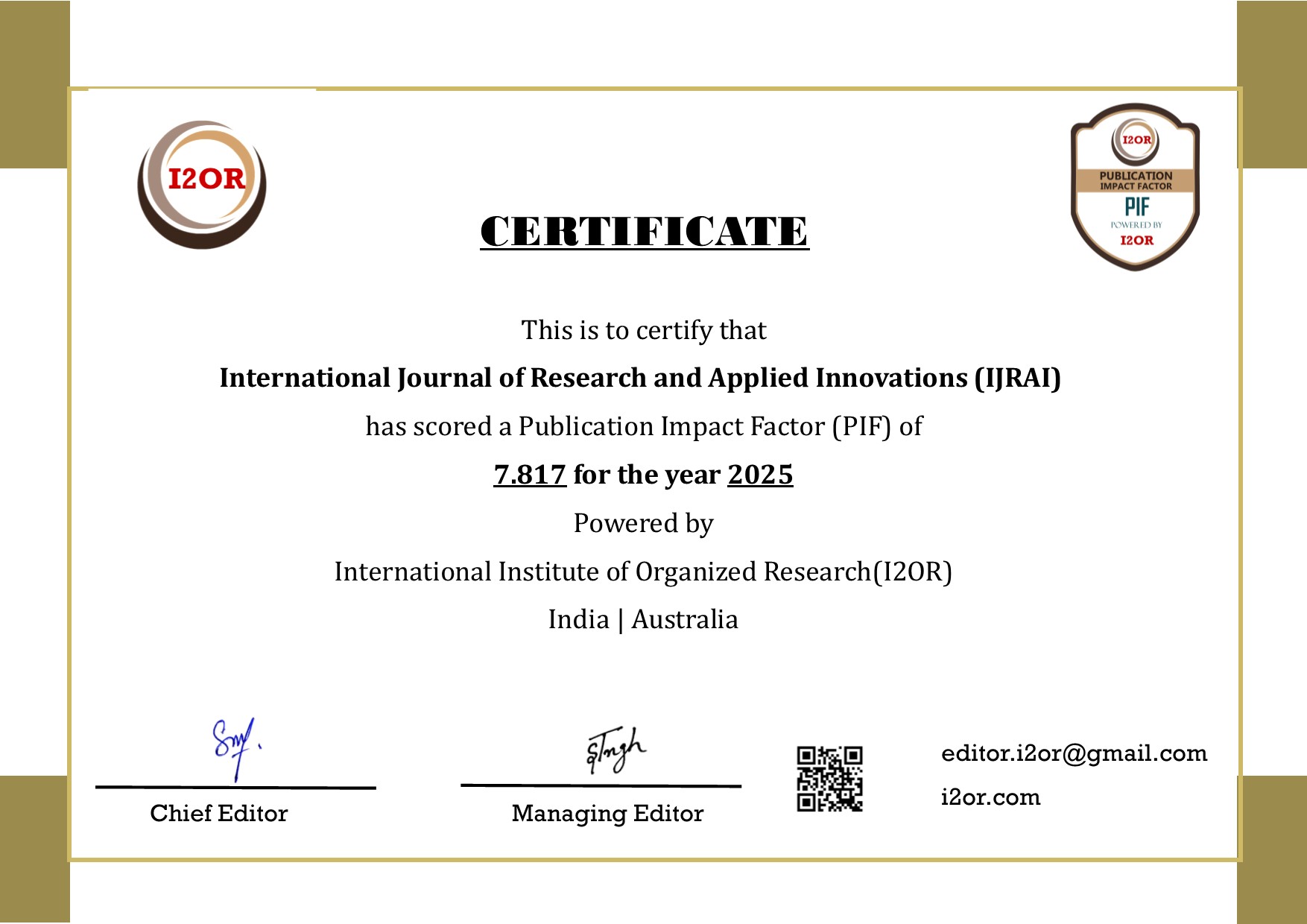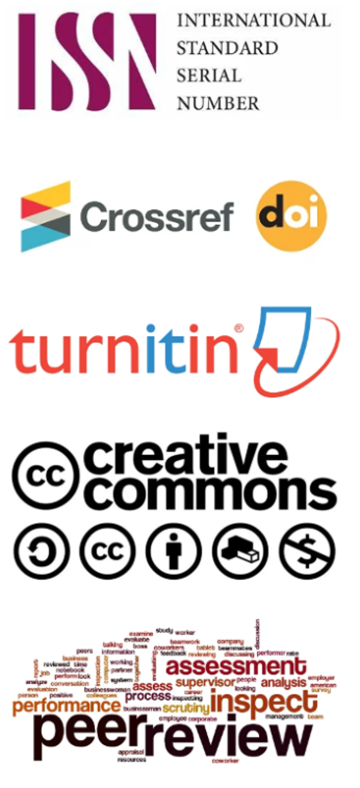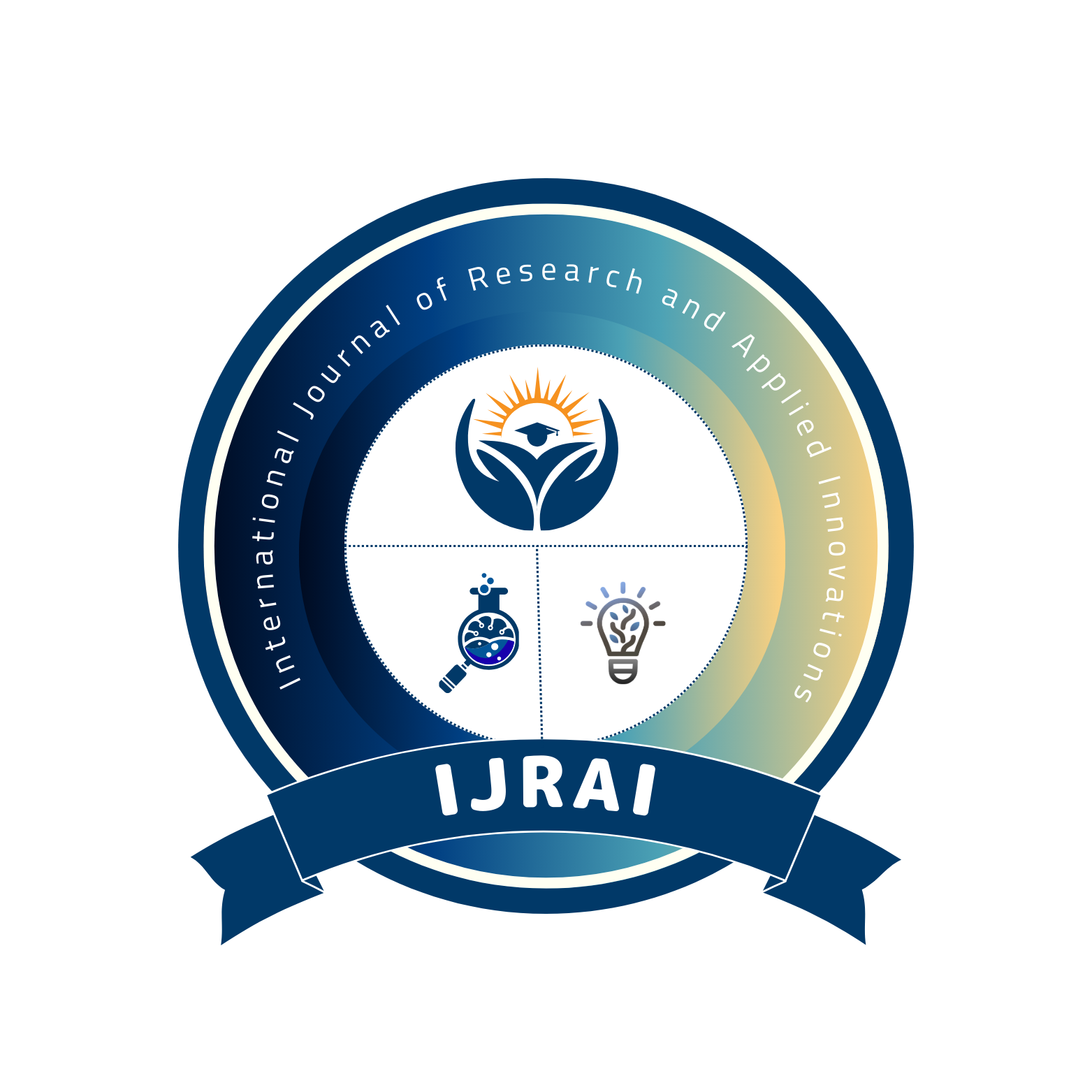Information For Reviewers
Becoming a Reviewer
If you are interested in joining the reviewer panel of IJRAI, please log in to your profile and update the “Role” section by checking the “Reviewer” option. Kindly specify your areas of expertise (e.g., Cloud Computing, Machine Learning, IoT etc). For further clarification, please contact the Editor-in-Chief at editor@ijrai.org
Already a Reviewer?
Thank you for supporting IJRAI by contributing your expertise. This guide outlines the expectations, ethical considerations, and recommendations for providing constructive peer reviews.
Reviewer Responsibilities
1. Scope & Expertise
· Accept only those manuscripts that fall within your area of expertise.
· If you can only comment on specific aspects, indicate this clearly in your review.
2. Conflict of Interest
· Disclose any conflicts (personal, institutional, financial, or professional).
· Conflicts do not automatically disqualify you, but transparency is essential for editorial decisions.
3. Time Commitment
· Ensure you have sufficient time to conduct a thorough review.
· If you cannot complete the review within the assigned deadline, notify the editor immediately to request an extension or decline.
4. Ethical Considerations
· Treat manuscripts as confidential. Do not share, discuss, or use the material without permission.
· Maintain your anonymity. Remove personal identifiers from review documents and track changes.
· Report suspected plagiarism or ethical misconduct to the editor, providing relevant details and citations.
How to Write a Constructive Review
· Provide clear, direct, and professional feedback that helps authors improve their work.
· Number your comments and, where possible, refer to specific line numbers in the manuscript.
· Use proactive statements (“The analysis would be clearer if…”) rather than vague questions.
· Balance critical feedback with positive remarks (e.g., highlighting innovative methods or strong arguments).
· Avoid correcting grammar/spelling unless errors affect clarity. Major language issues can be noted in a single general comment.
Review Structure
Opening Statement
· Summarize the manuscript (3–6 lines), its objectives, and scope.
· Mention if your review is limited to particular aspects due to expertise.
Global Comments
· Is the topic original, relevant, and suitable for IJRAI?
· Does the study add new value to the field?
· Are the design, methodology, and conclusions appropriate and consistent?
· Is the manuscript logically organized, clear, and concise?
· Are there signs of bias or unaddressed conflicts of interest?
Section-Specific Feedback
Title
· Does it accurately and concisely reflect the study’s content?
Abstract
· Does it summarize background, methods, results, and conclusions effectively?
· Is the conclusion appropriately stated?
Introduction
· Is the research problem clear and significant?
· Are references current, relevant, and critically analyzed?
· Are research gaps identified to justify the study?
Methods
· Is the study design described clearly?
· Are sampling, inclusion/exclusion criteria, and randomization (if any) explained?
· Were interventions and data collection methods reliable and valid?
· Are ethical approvals and consent procedures documented?
Results
· Are findings reported in a logical and consistent order?
· Are demographics, comparisons, and outcomes adequately presented?
· Do tables/figures enhance understanding and match the text?
· Are statistical or qualitative analyses appropriate and well-reported?
Discussion & Conclusions
· Are results tied back to the research question?
· Are limitations acknowledged?
· Are implications, relevance, and future directions discussed?
References
· Are they current, authoritative, and relevant?
· Are they properly cited and formatted?
Tables, Figures, and Supplementary Material
· Do they contribute meaningfully or duplicate content?
· Are they accurate, clear, and properly attributed?
· Are ethical requirements (e.g., subject confidentiality, image consent) met?
Submitting Your Review
· Provide both detailed feedback for authors and, separately, recommendations for the editor only.
· Final recommendations typically fall into one of the following categories:
o Accept as is
o Minor revisions (to be managed by the editor)
o Revise and resubmit (requires substantial work and re-review)
o Reject
Final Note
At IJRAI, we value thorough, fair, and constructive reviews that not only assess quality but also mentor authors—especially newer researchers—towards better scholarship. Your expertise is essential in upholding the integrity and impact of our journal.









